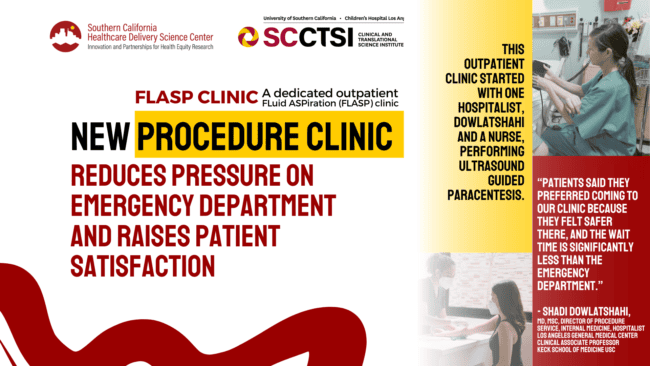CTSA News
Top Tags
Organization
Any
CTSA Program in Action Goals
Any
April 25, 2024
2023 CTSA Fall Program Annual Meeting Poster Spotlight: Patrick McDeed, M.S.
Georgetown-Howard Universities Center for Clinical and Translational Science

April 24, 2024
Seeking Applicants: Associate Dean for Clinical Research at the Keck School of Medicine of the University of Southern California (USC)
University of Southern California

April 23, 2024
New Procedure Clinic Reduces Pressure on Emergency Department and Raises Patient Satisfaction
University of Southern California

April 17, 2024
Colorado Clinical And Translational Sciences Institute (CCTSI) Community Engagement Forum – April 26, 2024
University of Colorado Denver

April 16, 2024
New FastTraCS Co-Executive Director Wants to Help UNC Clinicians Turn Ideas into Solutions
Univ of North Carolina Chapel Hill



